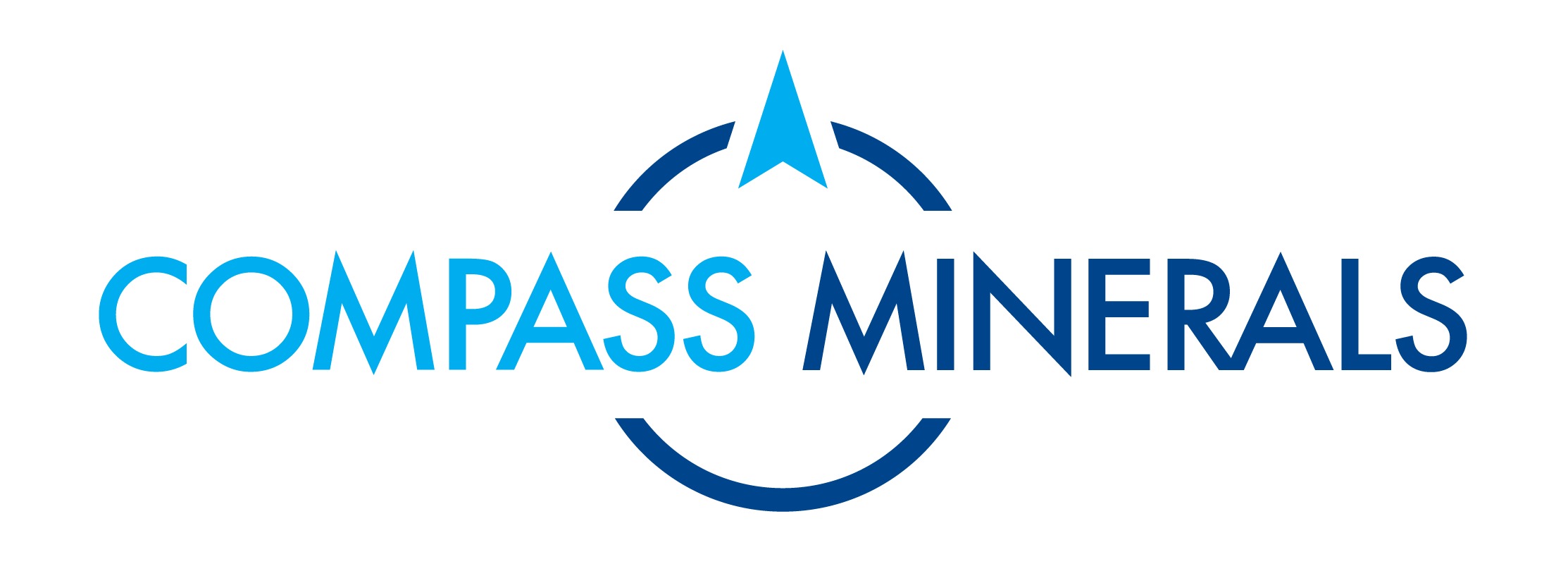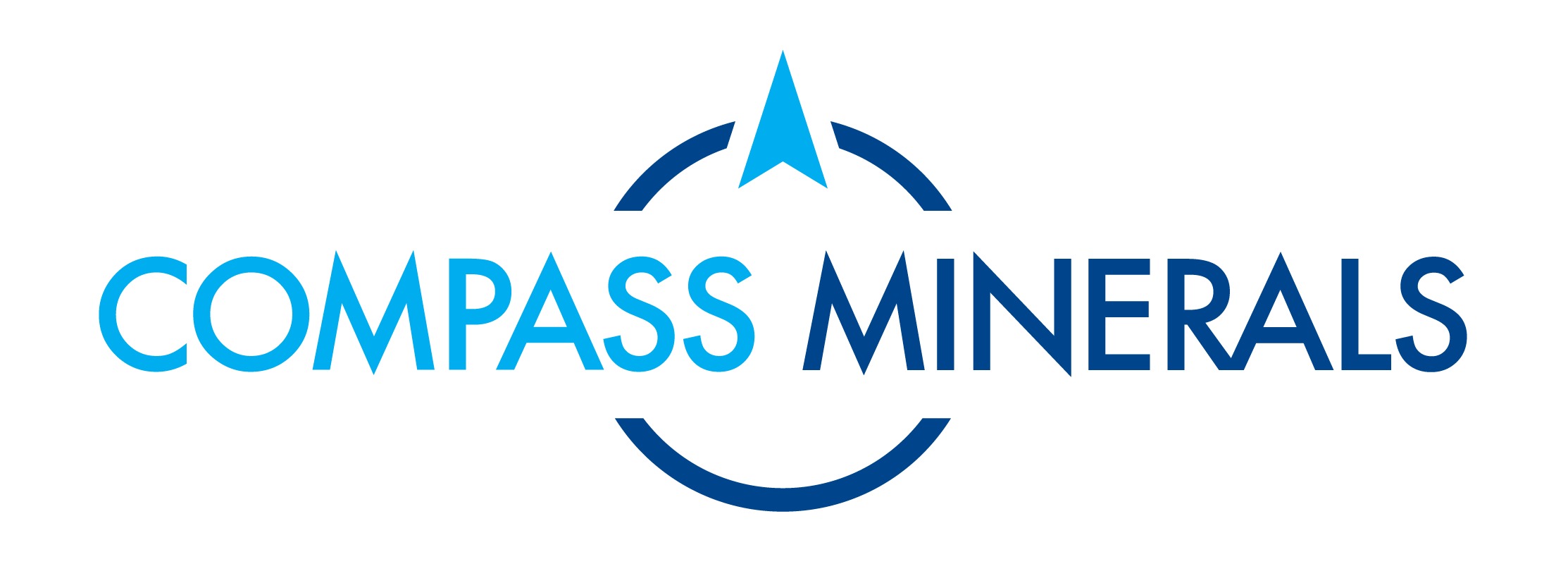Document
EXHIBIT 99.1
August 11, 2023
The Honorable David P. Hinkins
Utah Senate
Chair, Legislative Water Development Commission
The Honorable Casey Snider
Utah House of Representatives
Chair, Legislative Water Development Commission
Re: Correcting the Record Regarding Statements Made at Legislative Water Development Commission Meeting on August 7, 2023
Dear Senator Hinkins and Representative Snider:
I write to offer corrections regarding a number of false, or at best, misleading comments made with regard to Compass Minerals during the recent meeting of the Legislative Water Development Commission held on Monday, August 7, 2023, in Salt Lake City.
After updating the Commission on the status of the ongoing rulemaking process regarding H.B. 513 (“Great Salt Lake Amendments”) being undertaken by the Utah Division of Forestry, Fire and State Lands (FFSL), Director Barnes responded to several questions from Rep. Snider regarding potential lithium development in the State, including specific references to Compass Minerals’ publicly announced lithium development project. These questions were framed in the context of “announcements” from major lithium producers in the State regarding their ability to provide “critical minerals” to major international corporations.
Director Barnes stated that there is nothing currently “in process” for an operator to extract lithium from the Great Salt Lake, and, in response to Rep. Snider’s naming of Compass Minerals in particular, asserted that some of the operators have “gotten in front of the State on this.” Both Director Barnes and Rep. Snider later agreed that there are no agreements to mine lithium “at this time,” leading Rep. Snider to suggest that any preliminary action that Compass Minerals has undertaken to test lithium extraction was done “wrongly.”
Additionally, Director Barnes asserted that, regarding announced pilot projects Compass Minerals has conducted as a part of our lithium project’s strategic assessment, that FFSL is working with legal counsel to determine “what can be done about that taking place without there being a legal agreement to do so,” implying that Compass Minerals acted covertly.
Finally, in response to a question from Senator Hinkins about the distinction between the extraction of lithium and of minerals such as magnesium and titanium, Director Barnes suggested that there is no royalty rate currently established that applies to lithium.
Each of these assertions are factually incorrect, and I was both surprised and deeply disappointed by representations made to the Commission—in a public meeting no less—that our company has acted “wrongly,” or contrary to law.
First, it is fully within Compass Minerals’ rights to extract lithium salts (i.e., lithium chloride) from the Great Salt Lake. As FFSL is aware, Compass Minerals holds ten leases granted by the State (the Subject Leases), each of which were recognized to be in full force and effect by Recital F to the Amendment and Ratification of Royalty Agreement ML 19024 executed by Compass Minerals and the Division in March 2020. I would be happy to provide a copy of this document to the Commission if helpful.
Each of the Subject Leases expressly grants Compass Minerals the right to mine a broad range of minerals, with most of the leases (ML 19024, 19059, 22782, 24631, 25859, 43388, and 44607) confirming our rights to mine all mineral salts, chlorides, sulphates, carbonates, borates, silicates, oxides, nitrates, and associated minerals. One of the leases (ML 21708) grants our rights to mine “salts and salt products”, another (ML 23023) provides rights for “sodium salts and minerals in association therewith occurring in bedded or solid formation”, and the last (ML 200 00107) grants rights for the “purpose of extracting salts and other minerals dissolved or suspended in the water” of the Great Salt Lake.
To be perfectly clear, lithium chloride is, by its very chemical composition, a salt. As such, various scientific sources confirm that the broad range of minerals included in our existing mineral rights include lithium chloride. To provide examples, a 2017 United States Geological Survey report on critical mineral resources noted that lithium carbonate is commonly produced from brine when reacted with sodium carbonate. That same report states that lithium chloride and bromide are salts. Yet another USGS report noted that “lithium brine fields are spatially associated with sodium chloride evaporative deposits” and that “[l]ithium-brine deposits are commonly associated with borate mineralization,” which infers that lithium is a mineral “associated” or “in association” with sodium chloride and borates.
Looking back at the origins of our operations on the Great Salt Lake further support our rights to extract lithium salts. Agreements made in 1963 and 1964 between Turnbow, Morgan, and Morgan Peterson Enterprises—the original owners of the Subject Leases and Royalty Agreement—and Lithium Corporation of America, Inc., our predecessor company, address the allocation and reservation of certain lands and development rights, specifically mentioning rights for the development of lithium chloride and lithium salts. Again, I can provide copies of these documents if helpful to the commission.
Second, the assertion that our company conducted covert pilot projects as part of our strategic assessment of the Great Salt Lake resource is also demonstrably false. Compass Minerals publicly announced on July 13, 2021 that our company was undertaking a strategic resource assessment in pursuit of developing a sustainable lithium resource as a co-product of our existing mineral production on the Great Salt Lake and under our existing mineral and water rights. In that same announcement, we advised that we were undertaking pilot projects with our produced brine to test various direct lithium extraction (DLE) technologies. Our testing was focused not just on assessing the efficacy and commercial viability of each potential technology but, equally importantly, the environmental considerations of each technology in order to protect the health and sustainability of the Great Salt Lake’s sensitive ecosystem. Not all DLE technologies are created equal, and we felt it was imperative to select a technology partner that did not require the use of heavy chemicals for the extraction process, thereby risking the discharge of such chemicals back into the lake.
Since that initial public announcement, we’ve been extremely transparent in providing updates with regard to our pilot projects, including additional widely distributed news releases and other public presentations. For example, Joe Havasi, Vice President of Natural Resources for Compass Minerals, spoke directly to our ongoing pilot projects during his public presentation at Speaker Brad Wilson’s Great Salt Lake Summit in January 2022 (still available for viewing via YouTube). Interestingly, Mr. Havasi’s invitation to participate in the Speaker’s summit was facilitated by the Utah Department of Natural Resources.
Considering these regular and repeated public disclosures over the course of more than two years, it is frankly unfathomable that FFSL was not fully aware that our pilot projects were occurring. In fact, in an October 2022 meeting with FFSL leadership, Mr. Havasi provided an update on our pilot projects, as well as shared our publicly filed Technical Report Summary (TRS) for the Lithium Resource on the Great Salt Lake. The TRS document provides a detailed overview of the pilot testing that had occurred. Likewise, if FFSL was of the opinion that our pilot projects were being conducted without proper authority, it would seem to reason that the Division would have communicated that fact prior to the August 7 hearing.
Lastly, Director Barnes’ assertion to the Commission that there is no royalty rate that applies to lithium is also technically inaccurate. Because the Subject Leases I referenced above directly cover lithium salt (i.e., lithium chloride) extraction, Royalty Agreement ML 19024 covers lithium chloride as well, at an established royalty rate of 5 percent. Recital G to the 2020 Amendment and Ratification of the Royalty Agreement provides that the “Subject Leases are governed by the Royalty Agreement with respect to the percentage royalty payable on products manufactured from salts and other minerals extracted from the State of Utah lands and waters of the Great Salt Lake covered under the Subject Leases.” Further, the definition of “salts” applicable to the Royalty Agreement has not changed since the August 1, 1970 amendment, which defined “salts” as “all salts and other minerals or chemicals in solution in the waters of the Great Salt Lake or precipitated, crystallized, or extracted therefrom.” Lithium chloride easily fits in this definition, as it is both a salt and a chemical in solution.
Compass Minerals appreciates that the recent passage of H.B. 513 and the Division’s forthcoming rulemaking will subject the extraction and commercial sale of lithium salts to certain additional regulations and requirements. We have attempted to work collaboratively with FFSL during the rulemaking process, as requested by the Division, toward the establishment of a lithium-specific royalty regime that both supports the safe and environmentally responsible extraction of this critical resource, while also ensuring that the State of Utah receives full and fair compensation for the resource’s development. That said, H.B. 513 did not retroactively modify the scope of the existing agreements identified in this letter and doing so would represent a “taking” by the State.
In our more than a half-century of operating on the Great Salt Lake, our company has always prioritized responsible operations, working hand-in-hand with the State of Utah and numerous other stakeholders on the lake to create significant economic value while ensuring a healthy lake environment. During that time, we have also acted consistent with our established, longstanding mineral and water rights. We look forward to engaging in continued meaningful and professional discussions with FFSL and other interested leaders like this Commission concerning the opportunity that lithium development presents for the State and the many considerations that will help govern it.
I appreciate your attention to these matters and am happy to answer any questions you may have regarding the information provided.
Sincerely,
/s/ Kevin S. Crutchfield
Kevin S. Crutchfield
Chief Executive Officer
Compass Minerals
CC: All members of the Legislative Water Development Commission

